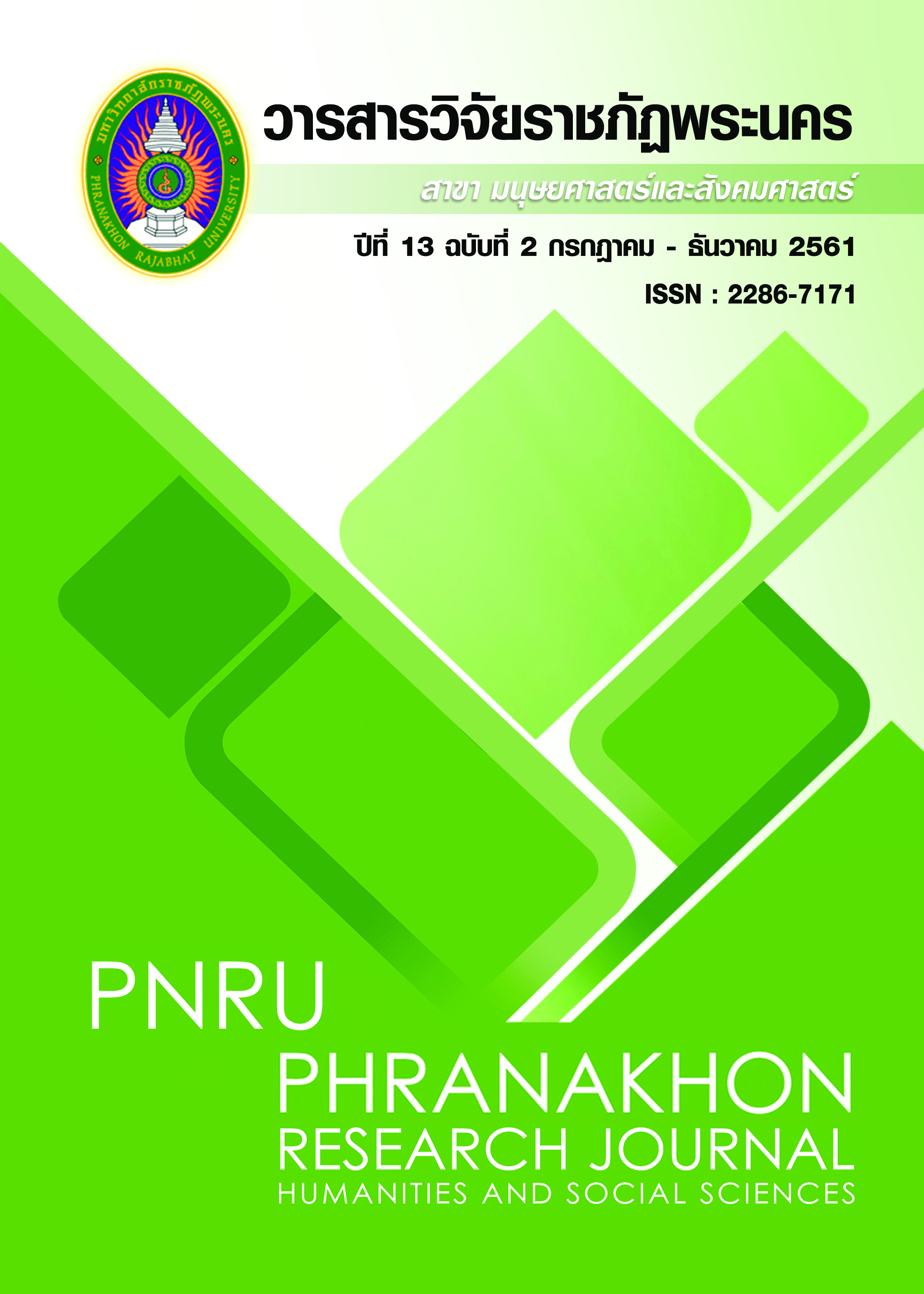LEADERSHIP IN DEVELOPMENT OF THE OTOP PRODUCT NETWORK IN CULTURAL ATTRACTIONS: A CASE STUDY OF SAMKHOK DISTRICT, PATHUMTHANI PROVINCE
Main Article Content
Abstract
This research was intended to study 1) the operational context of the OTOP product network in cultural attractions in Samkhok District, Pathumthani Province, and 2) the leadership in the development of the OTOP product network in cultural attractions in Samkhok District, Pathumthani Province. This research was qualitative with 15 in-depth interviews. The content analysis and componential analysis were applied for data analysis. The research results showed that the operational context of the OTOP product network consisted of the leaders, the group members, the OTOP products, and the cultural attractions at the sites. The leadership in the development of the OTOP product network in cultural attractions in Samkhok District found that most leaders expressed their leadership in the field of: encouraging inspirational motivation of subordinates, considering and well-wishing toward others, having morality in doing business, having capability in strategic thinking, and being openness. By encouraging the social consciousness, there is yet no clear expression.
Article Details
Each publish articles were copyright by Phranakorn Rajabhat University
Any contents which appeared in each articles in the journal were authors personal opinion. It did not relate to Phranakorn Rajabhat University and other instructors in the university. Each authors would take responsibility on their articles. If there are any mistake, the authors will take responsibility themselves
References
Chongvisal, R. (2006). The study of leadership of entrepreneurs in Thai small and medium sized enterprises. In the Proceedings of 44th Kasetsart University Annual Conference, Subject: Social Sciences. Bangkhen Campus, Kasetsart University. 275-282. (in Thai)
Janpetch, K. & Jadesadalug, V. (2016). The influence of transformational leadership perceptions affecting the creative working through affect – and cognition – based trust. PNRU Research Journal, Humanities and Social Sciences. 11(1), 125-135. (in Thai)
Jittungvarttana, B. (2005). Sustainable tourism development. Bangkok: Press & Design. (in Thai)
Khamwachirapithak, P., Maruekarajtinplaeng, S. & Khamwachirapithak, M. (2016). GIS database making for network development OTOP and places of attractions along the riverside at Amphoe Sam Khok and Amphoe Mueang, Pathum Thani province. Journal of Research and Development, Valaya Alongkorn under Royal Patronage (Humanities and
Social Sciences). 11(2), 1-11. (in Thai)
Meksuwan, A. & Wingwon, B. (2015). Role of leadership and member participation in driving toward the strength of sewing community enterprises, Ban Mae Hawl, Hangchat district, Lampang province. The Golden Teak: Humanity and Social Science Journal (GTHJ). 21(3), 20-31. (in Thai)
MSS Cable Network. (2017). Enhancing tourism and cultural identities of Samkhok District, Pathumthani. Retrieved August 10, 2017, from https://www.msspathumthani.com/detail.php?id=1688 (in Thai)
Sanglimsuwan, K. & Sanglimsuwan, S. (2012). Sustainable cultural heritage tourism. Executive Journal. 32(4), 139-146. (in Thai)
Sasong, C. & Wingwon, B. (2016). Stakeholders’ collaboration and a business plan play a role in driving the OTOP enterprises group to sustainable competitive advantage. Nakhon Phanom University Journal. 6(1), 124-133. (in Thai)
Surdcharee, T. (2007). Leadership: the movement mechanism for the learning organization. Ubon Ratchathani: Ubon Ratchathani Rajabhat University. (in Thai)
Thaitambon. (2017). OTOP product champion: OPC. Retrieved August 10, 2017, from https://www.thaitambon.com (in Thai)


